 Petzlover
Petzlover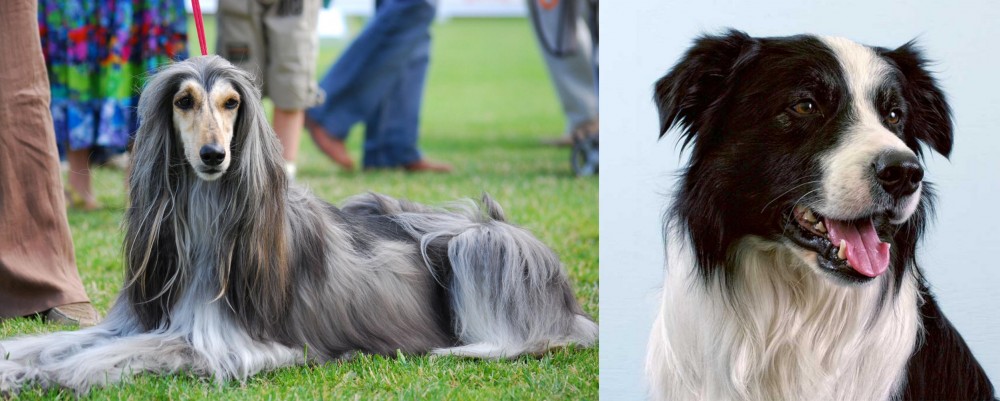 Afghan Hound is originated from Afghanistan but Border Collie is originated from United Kingdom. Afghan Hound may grow 18 cm / 8 inches higher than Border Collie. Afghan Hound may weigh 14 kg / 31 pounds more than Border Collie. Afghan Hound may live 3 years less than Border Collie. Both Afghan Hound and Border Collie has almost same litter size. Afghan Hound requires High Maintenance. But Border Collie requires Moderate Maintenance
Afghan Hound is originated from Afghanistan but Border Collie is originated from United Kingdom. Afghan Hound may grow 18 cm / 8 inches higher than Border Collie. Afghan Hound may weigh 14 kg / 31 pounds more than Border Collie. Afghan Hound may live 3 years less than Border Collie. Both Afghan Hound and Border Collie has almost same litter size. Afghan Hound requires High Maintenance. But Border Collie requires Moderate Maintenance
 The first known information about Afghan Hound was in the 19th century. That dog looked like a Saluki. The breed that we know today is a mix of an Afghan hound accentor which came to Britain in 1920s and other breeds that were popular in that period. Afghan Hound became popular because they were used to hunt big prays in Afghanistan. One of those breeds was Tasy breed. They were very popular among royalty because of its posture and elegance. Their popularity grew very quickly through the whole Europe.
The first known information about Afghan Hound was in the 19th century. That dog looked like a Saluki. The breed that we know today is a mix of an Afghan hound accentor which came to Britain in 1920s and other breeds that were popular in that period. Afghan Hound became popular because they were used to hunt big prays in Afghanistan. One of those breeds was Tasy breed. They were very popular among royalty because of its posture and elegance. Their popularity grew very quickly through the whole Europe.
They were also very popular because they were used to hunt antelopes, gazelles, and snow panthers. In India, English soldiers used them as a mail carrier.
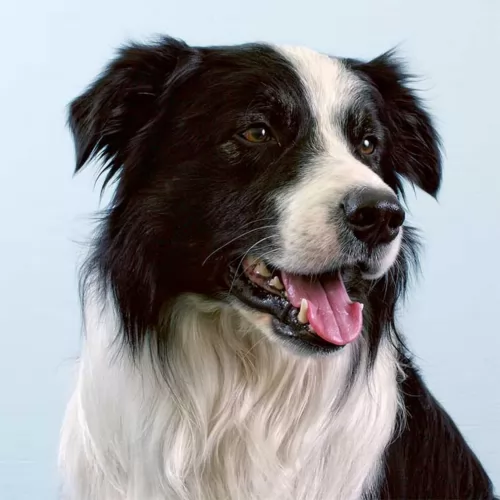 The Border Collie originated in Northumberland and was used to herd livestock. He is particularly well known for his intense stare in controlling the sheep in his care. The name Border Collier wasn’t used until 1915. This was so that the dog could be registered as a separate breed together with other Collie breeds already registered.
The Border Collie originated in Northumberland and was used to herd livestock. He is particularly well known for his intense stare in controlling the sheep in his care. The name Border Collier wasn’t used until 1915. This was so that the dog could be registered as a separate breed together with other Collie breeds already registered.
Sheepdog trials have been held since 1873. The very name of this dog gives you an inkling as to his heritage, as the word ‘Collie’ refers to sheepdogs and comes from Scottish dialect. Today the Border Collie is recognized as the ultimate sheep-herding dog, with his amazing intelligence and herding skills. The Border Collie was recognized by the American Kennel Club in October 1995.
 The average weight of an adult male is 26-34kg, while females are smaller with an average weight approximately 23 kg.
The average weight of an adult male is 26-34kg, while females are smaller with an average weight approximately 23 kg.
While average height of the Afghan Hound is 68-74cm. Females are slightly smaller with an average height of 63cm.
The lifespan of an Afghan Hound is 12-14 years, but that always depends on the dog to dog. If you have a healthy dog and you take proper care, they tend to live much longer than average lifespan.
Litter Size again variates from dog to dog, but an average litter size is 6-7 puppies.
Afghan hound has many other names, so you might know this breed as Tazi, Tazhi Spay, Da Kochyano Spay, Sage Balochi, Ogar Afgan, Barakzai Hound, Eastern Greyhound, and Persian Greyhound.
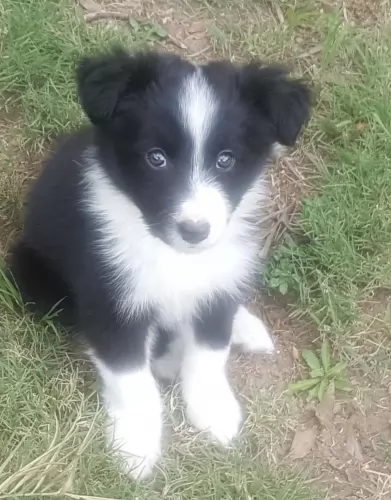 Utterly responsive, intelligent, alert and keen, the medium sized border collie loves nothing more than to be actively working. He requires both mental and physical stimulation. The ideal height for this very intelligent dog is 46 – 53cm and they weigh in at about 14 – 22kg.
Utterly responsive, intelligent, alert and keen, the medium sized border collie loves nothing more than to be actively working. He requires both mental and physical stimulation. The ideal height for this very intelligent dog is 46 – 53cm and they weigh in at about 14 – 22kg.
People who have been to sheepdog trials can only marvel a this dog and his intense stare, moving the sheep to precisely where his master wants them. The dog has a moderately long and smooth coat with a dense topcoat, with soft weather resistant undercoat. Most common color is black and white but other colors such as chocolate and white, liver and white or blue merle are also seen.
There are a few Border Collies which have a single-colour coat. He has a long feathery tail and the ears can be either erect, semi-erect and in some instances, even dropped. He has brown eyes but sometimes with the Merle Border Collie you can get one eye or part of the eye which is blue.
Border Collies are playful, energetic dogs who just love living in homes where the family involves him in all their activities. Because he is so intelligent, he is demanding of his human family, wanting them to take notice of him and provide him with lots of clever games and sports. If he is left without involvement, he can become frustrated and destructive. That is why it is so important to choose your pet carefully.
These highly energetic dogs require owners who recognize this need and are prepared to provide him with lots of games, walks and runs.
 Afghan hounds love spending time with one owner or one family. They are not very sociable with other guests. They won’t bark or attack. They simply just don’t enjoy big crowd company. They do not enjoy spending time with children, but if trained properly they will learn to adjust. They simply don’t like quick and sudden movements, but they are not aggressive towards children. They are very independent and intelligent dogs. It is important to be gentle, patient and kind because they love positive training and awards. They are amazing breed with proper owner. Rough handling and punishments will make Afghan hound withdrawn or even depressed. Afghan hound do not tend to please its owner.
Afghan hounds love spending time with one owner or one family. They are not very sociable with other guests. They won’t bark or attack. They simply just don’t enjoy big crowd company. They do not enjoy spending time with children, but if trained properly they will learn to adjust. They simply don’t like quick and sudden movements, but they are not aggressive towards children. They are very independent and intelligent dogs. It is important to be gentle, patient and kind because they love positive training and awards. They are amazing breed with proper owner. Rough handling and punishments will make Afghan hound withdrawn or even depressed. Afghan hound do not tend to please its owner.
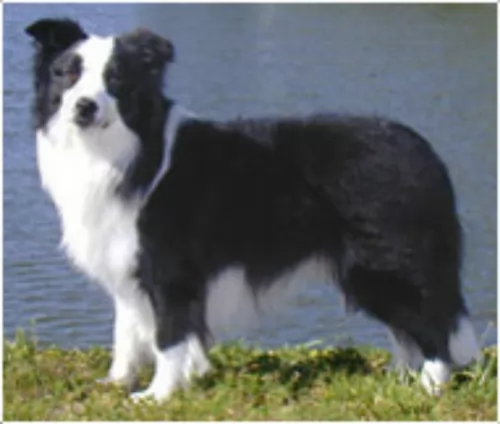 The Border Collie is such an awesome working dog breed, being of tremendous help to farmers. With their endless energy and stamina, given the chance he would want to be working all day. This medium sized dog will need a family where they are hard working and active just like him. He makes a wonderful pet with the right owners and if everyone is active in the family, he becomes your devoted soulmate.
The Border Collie is such an awesome working dog breed, being of tremendous help to farmers. With their endless energy and stamina, given the chance he would want to be working all day. This medium sized dog will need a family where they are hard working and active just like him. He makes a wonderful pet with the right owners and if everyone is active in the family, he becomes your devoted soulmate.
He is sensitive to what his owner wants and that is also because he is highly intelligent. Shower your wonderful pet with lots of love, give him lots of attention and plenty of activities, and you’ll have an awesome friend for life.
 Afghan hounds are generally very healthy breed. But, as every breed, they have tendencies to some health problems. If you want to prevent those diseases it is important to select a right and healthy puppy.
Afghan hounds are generally very healthy breed. But, as every breed, they have tendencies to some health problems. If you want to prevent those diseases it is important to select a right and healthy puppy.
Elbow and hip dysplasia are basically common health problem to any big breed. Juvenile cataracts, Cancer and Hypothyroidism are some of the health problems that have been found in this breed, but overall, with proper care and regular vet checks, you will have a happy and healthy Afghan.
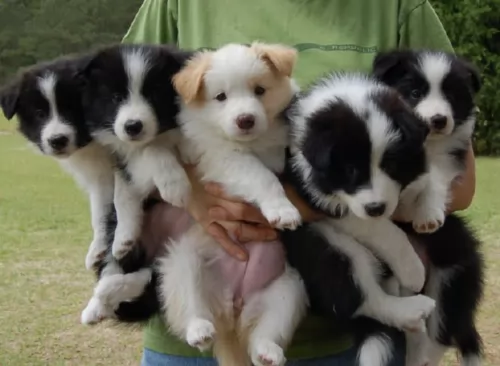 If your Border Collie is healthy, he can live to be 14 years of age and longer. There are one or two dog ailments that are more common in this breed, so it is wise to be aware of what can go wrong, although with good care it is highly unlikely.
If your Border Collie is healthy, he can live to be 14 years of age and longer. There are one or two dog ailments that are more common in this breed, so it is wise to be aware of what can go wrong, although with good care it is highly unlikely.
Primary epilepsy, known as idiopathic epilepsy can be seen in your dog before the age of 5 years, and although a genetic link in border collies has not yet been identified, idiopathic epilepsy is more prevalent in some breeds. Seizures in your dog are caused by electrical disturbances in the brain and treatment may be for life. While epilepsy in dogs can’t be cured, the condition can be managed with medication recommended by your vet and then he can lead a healthy life.
Collies are prone to developing hip dysplasia, which is an inherited condition with abnormal formation of the hip socket. For your pet it can mean lameness as well as painful arthritis. You’ll see your collie dog battling to rise after lying down. It is actually common in lots of dog breeds, but more so in larger breeds.
This is an inherited problem that can lead to your dog going blind. About 70 to 97% of collies in the UK and the United States are affected. Your veterinarian will examine your dog to determine the extent of the defect. It is common in the first year of a dog and can be be prevented if caught early.
 Afghan hound loves eating and 2-2.5 cups of high-quality dry food. It is better if the dog is feeding twice a day. Always depends on the activity of the dog, metabolism, age, size and built. So it is important to observe your dog and to realize what is the best quantity of food.
Afghan hound loves eating and 2-2.5 cups of high-quality dry food. It is better if the dog is feeding twice a day. Always depends on the activity of the dog, metabolism, age, size and built. So it is important to observe your dog and to realize what is the best quantity of food.
Feeding the Afghan puppy should be feed at least 3-5 times per day. It is important to feed your puppy with smaller portions, but more times per day.
Grooming this breed is not very hard, but it requires grooming and taking care of the long coat. Besides a couple of baths, every year and regular everyday grooming will make your dog hair look amazing! Afghan hound is not dog with a lot of requirements.
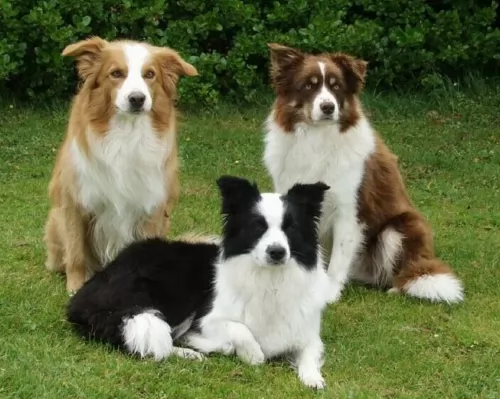 This is a dog that will need plenty of exercise and attention. He won’t do well cooped up in a tiny home. He’ll want lots of place to run and play and with his owners involved in his activities. It is unfair of any dog owner to buy a dog like this and then leave him so that he becomes distressed from being ignored.
This is a dog that will need plenty of exercise and attention. He won’t do well cooped up in a tiny home. He’ll want lots of place to run and play and with his owners involved in his activities. It is unfair of any dog owner to buy a dog like this and then leave him so that he becomes distressed from being ignored.
Do your dog a favor and see that he is socialized as a puppy and trained as he grows older. Once he has been trained, he becomes a super pet, obedient, sensitive and willing to please.
Border collies shed throughout the year, and with Summer his shedding becomes a bit more. He will require a good brushing at least twice a week to get rid of loose hairs and to ensure that the long hair doesn’t become tangled. He isn’t considered hypoallergenic and is regarded as a safe pet to have for people with allergies.
This high energy working dog will require top quality food from the top brands if you intend feeding him from commercially produced dog food. He will certainly need raw meat added to this food from time to time to ensure you stave off skin problems such as rashes. You can also add in rice, meat and vegetables for variety to ensure his is getting in all the minerals and vitamins he needs. Fresh, cool water should always be available to him day and night.